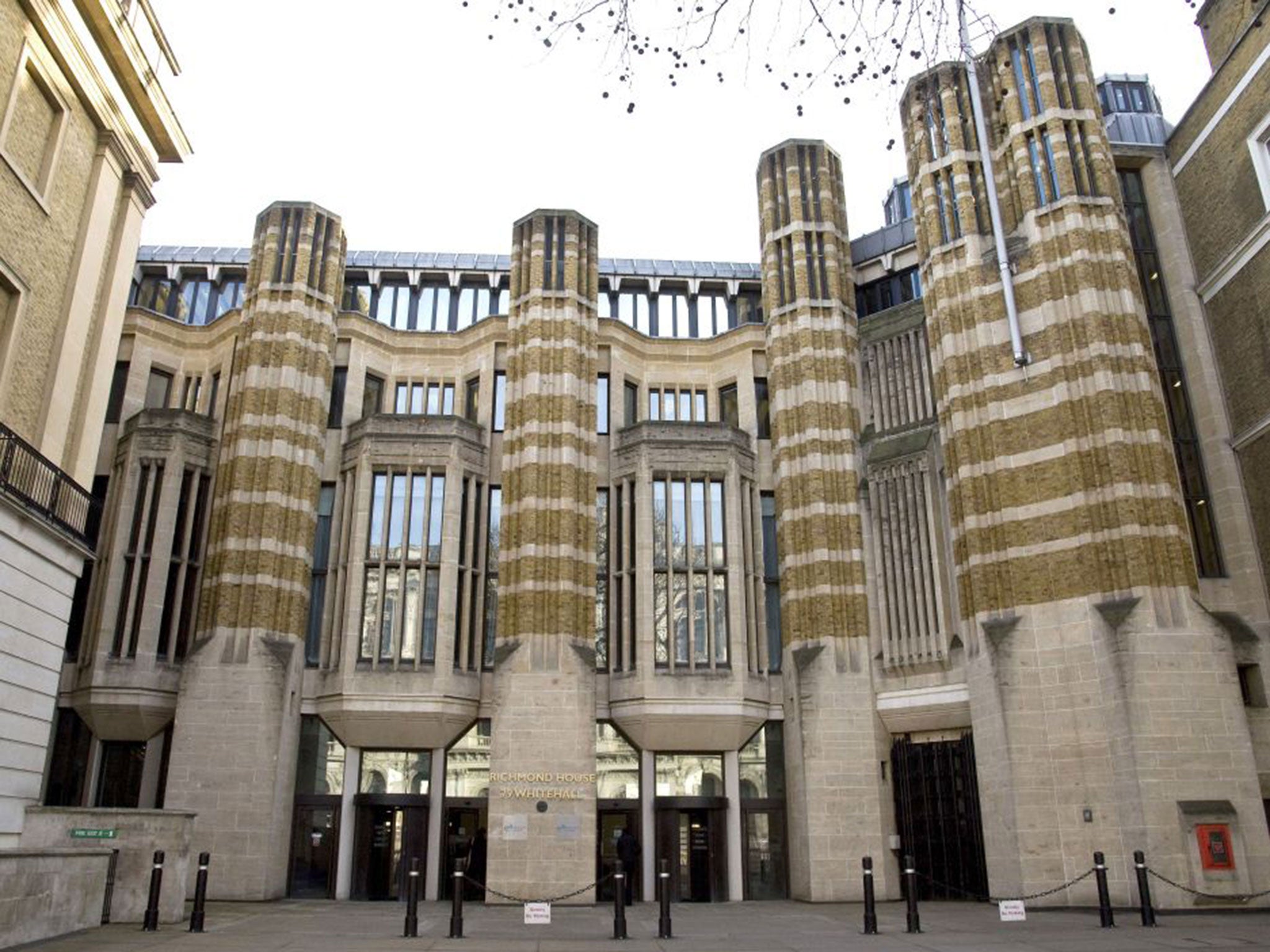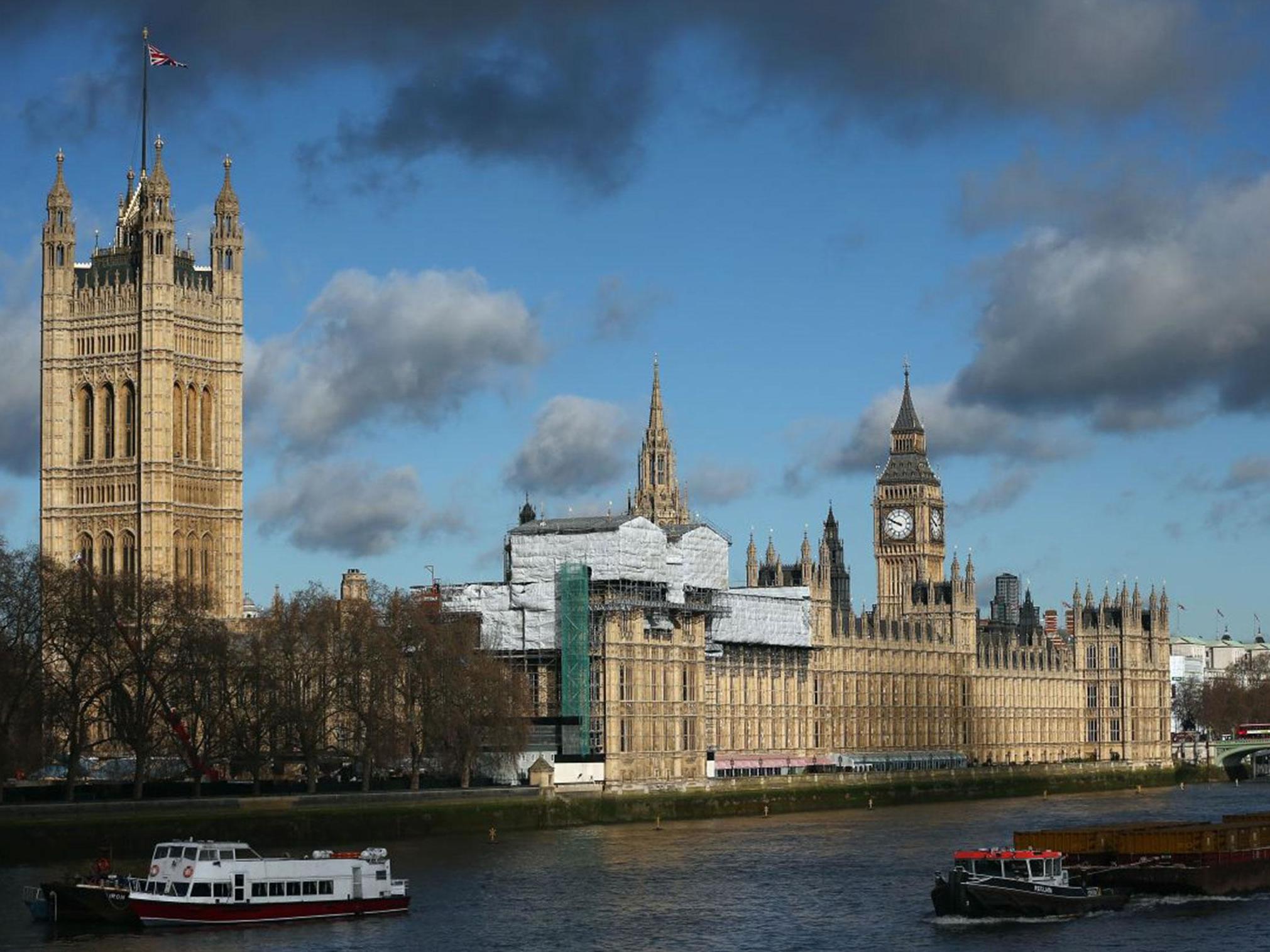Department of Health to leave Whitehall HQ to make way for Commons debating chamber
Committee favours using health officials' base at Richmond House while Parliament undergoes £7bn refurbishment

Your support helps us to tell the story
From reproductive rights to climate change to Big Tech, The Independent is on the ground when the story is developing. Whether it's investigating the financials of Elon Musk's pro-Trump PAC or producing our latest documentary, 'The A Word', which shines a light on the American women fighting for reproductive rights, we know how important it is to parse out the facts from the messaging.
At such a critical moment in US history, we need reporters on the ground. Your donation allows us to keep sending journalists to speak to both sides of the story.
The Independent is trusted by Americans across the entire political spectrum. And unlike many other quality news outlets, we choose not to lock Americans out of our reporting and analysis with paywalls. We believe quality journalism should be available to everyone, paid for by those who can afford it.
Your support makes all the difference.MPs are set to evict officials from the Department of Health from their headquarters on Whitehall to make way for a Commons debating chamber while Parliament is refurbished.
A cross-party committee of MPs and peers now strongly favour widening the Parliamentary Estate’s security zone to incorporate neighbouring Richmond House, which has been home to health officials since it opened in 1987.
This block would then be either converted into a debating chamber or used as MPs’ offices to make room elsewhere on the estate for a temporary home for the Commons. The House of Lords chamber could be moved to the Queen Elizabeth II Conference Centre 200 metres from the Palace of Westminster, although this is expected to be resisted by peers unhappy at the risks of crossing busy roads.
The rebuild, which has been estimated to cost around £7bn and take at least six years from 2020, is vital because Parliament does not function properly as a working office. Built in the 19th century, the Palace of Westminster’s problems include infestations of rats, patchy wi-fi, crumbling brickwork, asbestos, and the inability to properly close many of its 3,800 windows.
The committee was established last year to assess how to proceed with the work after a report led by Deloitte Real Estate, which cost £2m, came up with several options.

However, members of the 12-strong committee have been privately critical of this report. For example, one option to decant MPs and Lords separately has turned out to be extraordinarily difficult, because the chambers share various systems. If one chamber is out of action while being refurbished, the other will almost certainly have to be as well.
“We’re barely considering what was in the options appraisal,” said one member of the committee. “It’s £2m wasted.”
The source added that Richmond House would be taken over “specifically for the advantages” of the ease of expanding security, and others confirmed that this was now the favoured option. There were fears that moving MPs off-site left them exposed to an attack.
Richmond House would become part of what is known as the Northern Estate, which is linked to Parliament though an underground passage, but is on the opposite side of the road.
A temporary chamber could then be constructed within Richmond House, in a courtyard, or in the other listed buildings, such as Norman Shaw North or South.
If the final idea is pursued, MPs could be moved to Richmond House while a listed building is reconfigured to house the Commons’ debating chamber.
It is unclear where the health officials would be moved to, but the Cabinet Office’s property unit has been contacted to look into expanding the security cordon to include Richmond House.
It is thought most of the committee now accepts that the only way to rescue Parliament is to move out all staff and MPs rather than reconstruct it on a piecemeal basis, which could take decades. But this has led to concerns that some one-term MPs might never get to speak from the green benches.
There are also concerns that meeting the start date four years from now is too tight a timetable for what is likely to be one of the most fiendishly difficult refurbishment jobs that the British construction industry has ever undertaken.
A committee source said the QEII remained “a strong contender” for the Lords, but warned: “Lords’ votes have got to remain close to the Commons because we’re a Parliament, not two separate institutions.”
Subscribe to Independent Premium to bookmark this article
Want to bookmark your favourite articles and stories to read or reference later? Start your Independent Premium subscription today.
Join our commenting forum
Join thought-provoking conversations, follow other Independent readers and see their replies
Comments